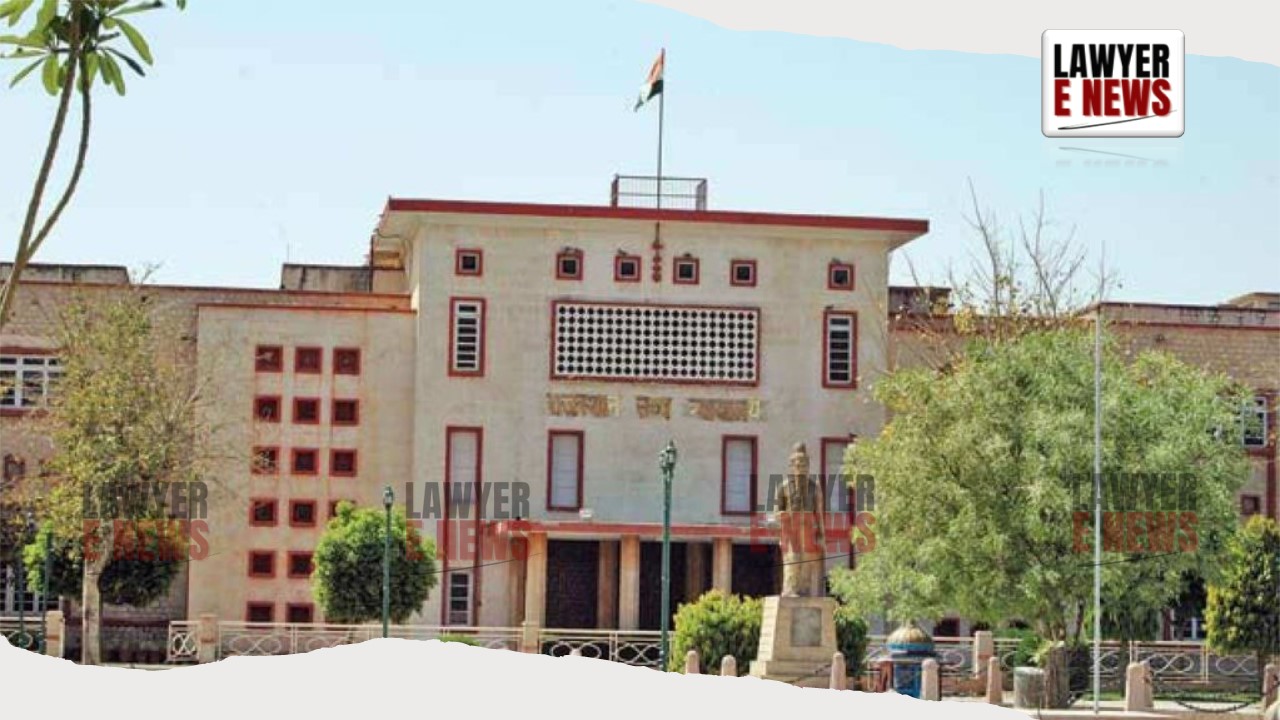-
by Admin
15 February 2026 2:16 AM



The Rajasthan High Court has dismissed a series of writ petitions filed by the Rajasthan State Road Transport Corporation (RSRTC) challenging the awards passed by the National Lok Adalat. The court, in its judgment delivered by Justice Anoop Kumar Dhand, emphasized the finality and binding nature of Lok Adalat awards under Section 21 of the Legal Services Authorities Act, 1987, and reiterated that such awards cannot be easily set aside on technical grounds.
The case involved multiple writ petitions filed by RSRTC challenging the awards passed by the National Lok Adalat on November 12, 2022. The awards in question were related to the reinstatement of several workmen, including Virendra Singh, a conductor whose services were terminated in December 2014 on allegations of misconduct. Despite the termination, the workmen sought reinstatement without back wages, which was granted by the Lok Adalat based on RSRTC’s policy dated October 27, 2022.
RSRTC contested these awards, arguing that the settlements were unauthorized as the designated counsels were not present, and the awards were signed by another panel counsel, Mr. Om Prakash Sheoran, who was not specifically authorized to represent the corporation in these settlements.
Finality of Lok Adalat Awards: The court underscored the finality of Lok Adalat awards as stipulated under Section 21 of the Legal Services Authorities Act, 1987, stating, “Every award of the Lok Adalat shall be deemed to be a decree of a civil court and shall be final and binding on all the parties to the dispute, with no appeal lying against the award.” The court noted that the awards were passed following RSRTC’s policy and that no allegations of fraud or jurisdictional errors were raised by the corporation.
Validity of Counsel’s Actions: Addressing RSRTC’s contention regarding the authorization of Mr. Om Prakash Sheoran, the court observed that Mr. Sheoran was a standing counsel regularly representing RSRTC in various matters. The court found no evidence suggesting that RSRTC had taken any disciplinary action against Mr. Sheoran for signing the settlements, which indicated that the corporation’s challenge was an afterthought.
Legal Reasoning: The judgment highlighted the importance of the Lok Adalat system in reducing court burdens and fostering amicable dispute resolution. Justice Dhand stated, “The attempt of the court should be to give enforceability to the award passed by the Lok Adalat and not to defeat the same on technical grounds.” The court emphasized that Lok Adalat awards, being based on mutual consent, act as an estoppel against the parties, preventing them from challenging the awards without substantial grounds such as fraud.
Quotes from the Judgment: In a significant remark, Justice Dhand stated, “The RSRTC is estopped from taking any contrary action and is bound by the impugned awards and is under legal obligation to implement the same.” He further added, “The Lok Adalat is a way where both parties win and no one loses,” stressing the value of such dispute resolution mechanisms.
Conclusion: The Rajasthan High Court’s dismissal of RSRTC’s writ petitions reinforces the binding nature of Lok Adalat awards and the judiciary’s support for alternative dispute resolution mechanisms. By affirming the finality of these awards, the judgment sends a clear message about the enforceability of Lok Adalat settlements, ensuring that such resolutions are respected and implemented without unnecessary litigation. This decision is likely to have a significant impact on the future approach of public institutions towards settlements reached in Lok Adalats.
Date of Decision: August 31, 2024
Rajasthan State Road Transport Corporation vs. Virendra Singh & Ors.
